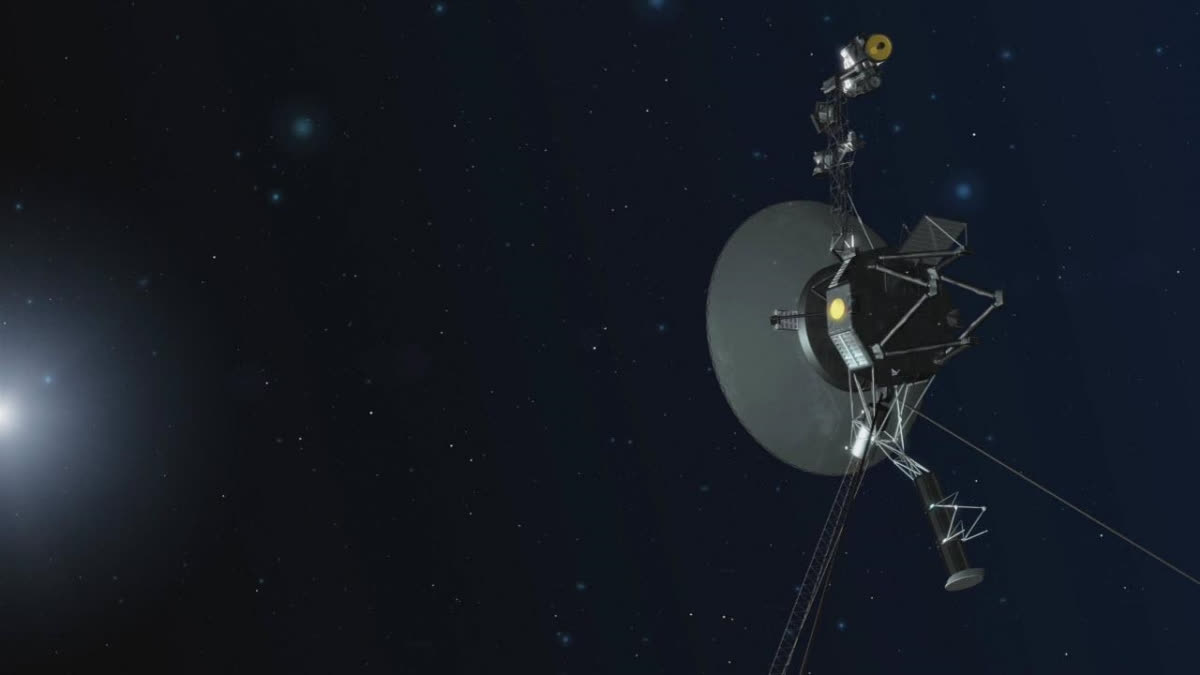Cape Canaveral (Florida, USA): NASA’s Voyager 2 spacecraft was back chatting it up Friday after flight controllers corrected a mistake that had led to weeks of silence. Hurtling ever deeper into interstellar space billions of miles away, Voyager 2 stopped communicating two weeks ago. Controllers sent the wrong command to the 46-year-old spacecraft and tilted its antenna away from Earth.
-
Can you hear me now? 📡
— NASA Voyager (@NASAVoyager) August 4, 2023 " class="align-text-top noRightClick twitterSection" data="
Last night, I reestablished full communications with Earth thanks to some quick thinking and a lot of collaboration. I'm operating normally and remain on my expected trajectory. So glad I can finally phone home.
-V2
More: https://t.co/S3BFRo9Va9
">Can you hear me now? 📡
— NASA Voyager (@NASAVoyager) August 4, 2023
Last night, I reestablished full communications with Earth thanks to some quick thinking and a lot of collaboration. I'm operating normally and remain on my expected trajectory. So glad I can finally phone home.
-V2
More: https://t.co/S3BFRo9Va9Can you hear me now? 📡
— NASA Voyager (@NASAVoyager) August 4, 2023
Last night, I reestablished full communications with Earth thanks to some quick thinking and a lot of collaboration. I'm operating normally and remain on my expected trajectory. So glad I can finally phone home.
-V2
More: https://t.co/S3BFRo9Va9
On Wednesday, NASA’s Deep Space Network sent a new command in hopes of repointing the antenna, using the highest powered transmitter at the huge radio dish antenna in Australia. Voyager 2's antenna needed to be shifted a mere 2 degrees. It took more than 18 hours for the command to reach Voyager 2 — more than 12 billion miles (19 billion kilometers) away — and another 18 hours to hear back.
The long shot paid off. On Friday, the spacecraft started returning data again, according to officials at California's Jet Propulsion Laboratory. “I just sort of sighed. I melted in the chair,” project manager Suzanne Dodd told The Associated Press. “Voyager's back,” project scientist Linda Spilker chimed in.
Also read; Chandrayaan-3: Spacecraft covers two-thirds of distance to moon
Voyager 2 has been hurtling through space since its launch in 1977 to explore the outer solar system. Launched two weeks later, its twin, Voyager 1, is now the most distant spacecraft — 15 billion miles (24 billion kilometers) away — and still in contact. The two-week outage was believed to be the longest NASA had gone without hearing from Voyager 2, Dodd said.
As long as their plutonium power holds, the Voyagers may be alive and well for the 50th anniversary of their launch in 2027, according to Dodd. Among the scientific tidbits they've beamed back in recent years include details about the interstellar magnetic field and the abundance of cosmic rays.
“We've been very clever over the last 10 years to eke out every single little watt,” Dodd said. “Hopefully, one of them will make it to 50. But they are old and certainly events like this one that just happened scare the dickens out of me, as far as making that type of a milestone." (AP)



